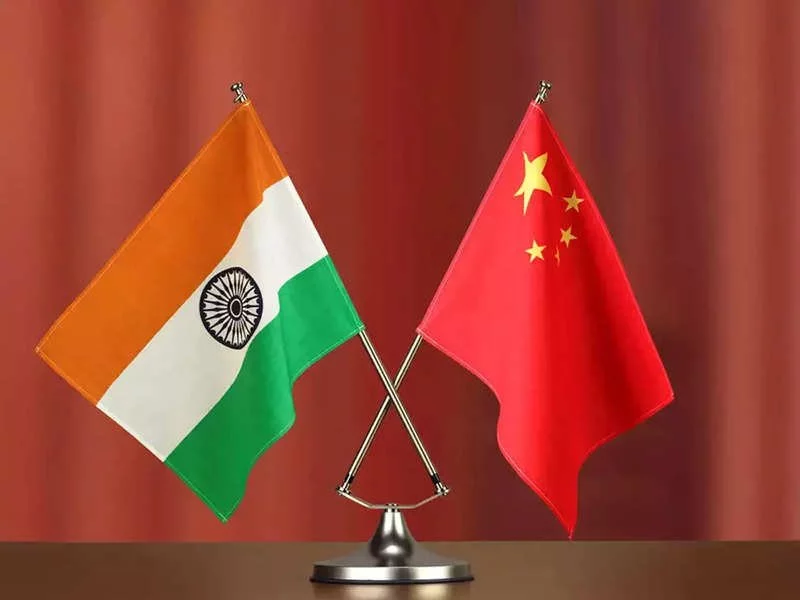India is proving to be more than a match to China’s mind-games ahead of a new round of military talks which may yield disengagement at Hot Springs—a hotspot in eastern Ladakh where Indian and Chinese troops are locked in a tense standoff.
Ahead of the important military talks on Sunday to pull back troops that were deployed since May 2020, following China’s incursions in eastern Ladakh, the Chinese have stepped up playing mind-games with India.
The Taiwanese website ltn. Com, 200 reported that Chinese troops had intruded into Bum La, near Tawang in Arunachal Pradesh. The intruders were arrested but later released after intervention by local commanders.
But the messaging of the move should not be ignored. The Chinese stake claim over the Tawang monastery, the birthplace of the VI th Dalai Lama, to reinforce their claims over Tibet and uphold the one-China principle. Second, the purpose of the move is to apparently spotlight China’s awareness of the apparent vulnerability of the Siliguri corridor—the narrow passage that links the northeast with the rest of India. Tawang’s communication line extends to Guwahati and the Siliguri Corridor, a major border traffic centre.
The Chinese have also recently accused India of starting an “arms race” by introducing hi-tech weaponry in Ladakh. It has also slammed India of pursuing a “forward policy,” a throwback to the pre-1962 situation when India began to bolster its defences following China’s surreptitious construction of a 1,200 km road connecting Xinjiang and western Tibet, of which 179 km ran through Aksai Chin region that India claims as part of its territory.
But India appears to have unnerved China after holding the first face-to-face summit of the Indo-Pacific QUAD which also includes Japan, Australia and United States as partners, in New York on the side-lines of the United Nations General Assembly (UNGA) session. Prime Minister Narendra Modi, in his UNGA address also nailed the relevance of Indian democracy as a role model for overall advancement, implying a repudiation of Chinese authoritarianism and Pakistani radicalism.
India’s Army Chief Gen. Manoj Mukund Naravane appears to fighting a frontal war in countering China’s psychological warfare.
Speaking at an India Today conclave on Saturday, Gen.Naravane said that China is continuing to beef up its troops and infrastructure build-up at the Line of Actual Control (LAC) but he made it clear that "If they are there to stay, we are there to stay, too.”
Also read: China amasses troops in Ladakh but blames India of pursuing a ‘forward policy’
"It is a matter of concern that there is a large-scale build-up taking place. There has been infrastructural build-up by the Chinese side and that means they are there to stay…If they are there to stay, we are there to stay, too, he said.
The build-up on our side and developments on our side, I would say are as good as what the PLA has done," General Naravane said, "If they continue to stay through the second winter, …we'll have to keep a close eye on their troop build- up."
Responding to a question about the India-China standoff in Ladakh, General Naravane pointed out that the Ministry of External Affairs spokesperson has clearly mentioned that whatever has happened on the northern border is because of the massive build-up by the Chinese and in the non-adherence of protocols laid down in the past. This was the reason for the standoff and all that happened subsequently."
General Naravane was referring to the bloody clash that took place between Indian and Chinese troops in Ladakh’s Galan valley in which several soldiers on both sides were killed causing relations between the two countries to hit a new low.
Separately, foreign secretary Harsh Shringla also asserted at the same event that India was busy in dealing with the first wave of Covid-19 when the Chinese went ahead with a major military build-up in Eastern Ladakh, which was in violation of several agreements we signed in 1993, 1996. He said that the Chinese behaviour “has strengthened our resolve that unless we deal with these issues firmly, we will not be able to restore normal ties with Beijing".
"We have had 12 rounds of senior commander meetings, engagements at diplomatic levels and have resolved some of the pressing issues along with border areas but we are still in the process and hope we make headway in the next rounds of talks," he added.




















